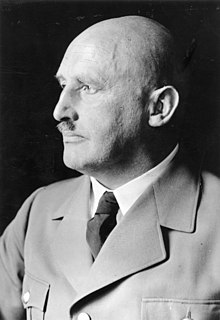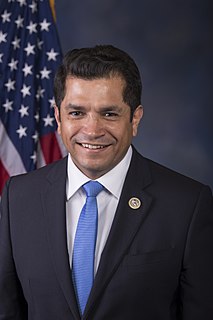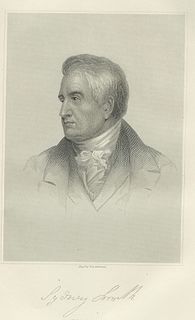A Quote by Noam Chomsky
It was right after Woodrow Wilson's first serious post-World War I repression, which deported thousands of people, effectively destroyed unions and independent press, and so on. Right after that, the anti-immigration law was passed that remained in place until the 1960s.
Related Quotes
It's very important to understand that World War II is at the base of this new policy. From the 1890s on, the U.S. was always imperialistic. We went after the Philippines, and we did the same in Cuba, in Hawaii. We controlled South America. Woodrow Wilson was not what he was supposed to be. He was very much a white man first. "The world must be made safe for democracy." It really accelerates after World War II.
Woodrow Wilson is reported to have told a Princeton colleague, shortly after the 1912 election, "It would be an irony of fate if my administration had to deal chiefly with foreign problems, for all my preparation has been in domestic matters." In the event, Wilson's early months were marked by substantial domestic legislative accomplishment. Unfortunately, after Europe plunged into the Great War in August 1914, Wilson's leadership was uncertain.
When Arthur Schlesinger Sr. pioneered the 'presidential greatness poll' in 1948, the top five were Lincoln, Washington, Franklin D. Roosevelt, Woodrow Wilson, and Jefferson. Only Wilson appears to be seriously fading, probably because his support for the World War I-era Sedition Act now seems outrageous; in this analogy, Woodrow is like the Doors and the Sedition Act is Oliver Stone.
[The right] may never bring prayer back to schools, but it has rescued all manner of rightwing economic nostrums from history's dustbins. Having rolled back the landmark economic reforms of the sixties (the war on poverty) and those of the thirties (labor law, agricultural price supports, banking regulation), its leaders now turn their guns on the accomplishments of the earliest years of progressivism (Woodrow Wilson's estate tax; Theodore Roosevelt's anti-trust measures). With a little more effort, the backlash may well repeal the entire twentieth century.
It appeared that after first contemplating a book on some subject, and after giving serious preliminary attention to it, I needed a period of subconscious incubation which could not be hurried and was if anything impeded by deliberate thinking.... Having, by a time of very intense concentration, planted the problem in my subconsciousness, it would germinate underground until, suddenly, the solution emerged with a blinding clarity, so that it only remained to write down what happened as if in a revelation.
Woodrow Wilson was the president of the United States in 1920, and he was made a fool of - his wife almost divorced him - because he wouldn't support women's suffrage. He was president during World War I, but I look back upon him as a coward. Because he knew the right thing to do - the right of women to vote was an idea whose time had come a long time before then, when a lot of women were put into prison or persecuted because they fought for it.
The big thing is, everybody says it's being in the right place at the right time. But it's more than that, it's being in the right place all the time. Because if I make 20 runs to the near post and each time I lose my defender, and 19 times the ball goes over my head or behind me - then one time I'm three yards out, the ball comes to the right place and I tap it in - then people say, right place, right time. And I was there *all* the time.
By nature's law, every man has a right to seize and retake by force his own property taken from him by another, by force of fraud. Nor is this natural right among the first which is taken into the hands of regular government after it is instituted. It was long retained by our ancestors. It was a part of their common law, laid down in their books, recognized by all the authorities, and regulated as to circumstances of practice.
Slavery remained in the Deep South by other names - in prison programs with charges over nothing and eternal debt that threatened every African-American in the South right up through World War II. And that was after killing three-quarters of a million people, destroying cities, and creating hostility that exists to this day over the the Confederate flag and the racism it symbolizes, all brewing out of bitterness over a war that didn't have to happen.






































